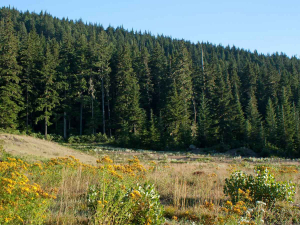ETS costs cut 66% for forest owners – McClay
Additional reductions to costs for forest owners in the Emissions Trading Scheme Registry (ETS) have been announced by the Government.
 New Zealand Rural Land Company has completed the purchase of forestry land in the Manawatu-Whanganui region.
New Zealand Rural Land Company has completed the purchase of forestry land in the Manawatu-Whanganui region.
New Zealand Rural Land Company (NZL) has completed the acquisition of a forestry estate located in the Manawatu-Whanganui region.
The estate comprises five individual properties with a total area of approximately 2,400ha, and was purchased at an acquisition cost of approximately $63 million.
The entire estate has been leased to New Zealand Forestry Leasing (NZFL) for a period of 20 years, with the first year’s payment being approximately $5m.
Co-founder and New Zealand Rural Land Management director Richard Milsom says the purchase was funded using a combination of debt and equity.
Debt was provided through an increase in borrowings from Rabobank of $25.2m.
“The equity component has been funded from the proceeds of NZL’s recent capital raise offer and from the proceeds of a $12m convertible note issued to an entity associated with NZFL.
“This forestry estate acquisition means NZL now owns 141,101ha of rural land with a 12.1 year weighted average lease term (by value), and 100% occupancy across eight tenants. It adds materially to the scale and diversity of NZL’s asset and tenant base,” says Milsom.
Rabobank regional head of sustainable finance for Australia & New Zealand Jurre Smits says the Rabobank green loan was provided to support NZL’s forestry acquisition and established a Green Financing Framework that will set out the eligible asset classes and how the proceeds from the loan will be used, managed and reported on, in line with the Asia Pacific Loan Market Association’s Green Loan Principles.
“Rabobank is proud to have partnered with NZL on this transaction as it contributes to climate change mitigation by protection and conservation of forestland, and therefore preserves the CO2 sequestering capability of the land,” Smits says.
“In addition, the green loan also supports improved biodiversity of the assets,” he says.
Leading trade analyst Stephen Jacobi has rubbished claims that New Zealand could have got a better free trade deal with India if it had prolonged the negotiations.
One of New Zealand’s longest-running pasture growth monitoring projects will continue, even as its long-time champion steps away after more than five decades of involvement.
The Insurance & Financial Services Ombudsmen Scheme (IFSO Scheme) is advising consumers to prepare for delays as insurers respond to a high volume of claims following this week's severe weather.
Additional reductions to costs for forest owners in the Emissions Trading Scheme Registry (ETS) have been announced by the Government.
Animal welfare is of paramount importance to New Zealand's dairy industry, with consumers increasingly interested in how food is produced, not just the quality of the final product.
Agriculture and Forestry Minister Todd McClay is encouraging farmers and growers to stay up to date with weather warnings and seek support should they need it.